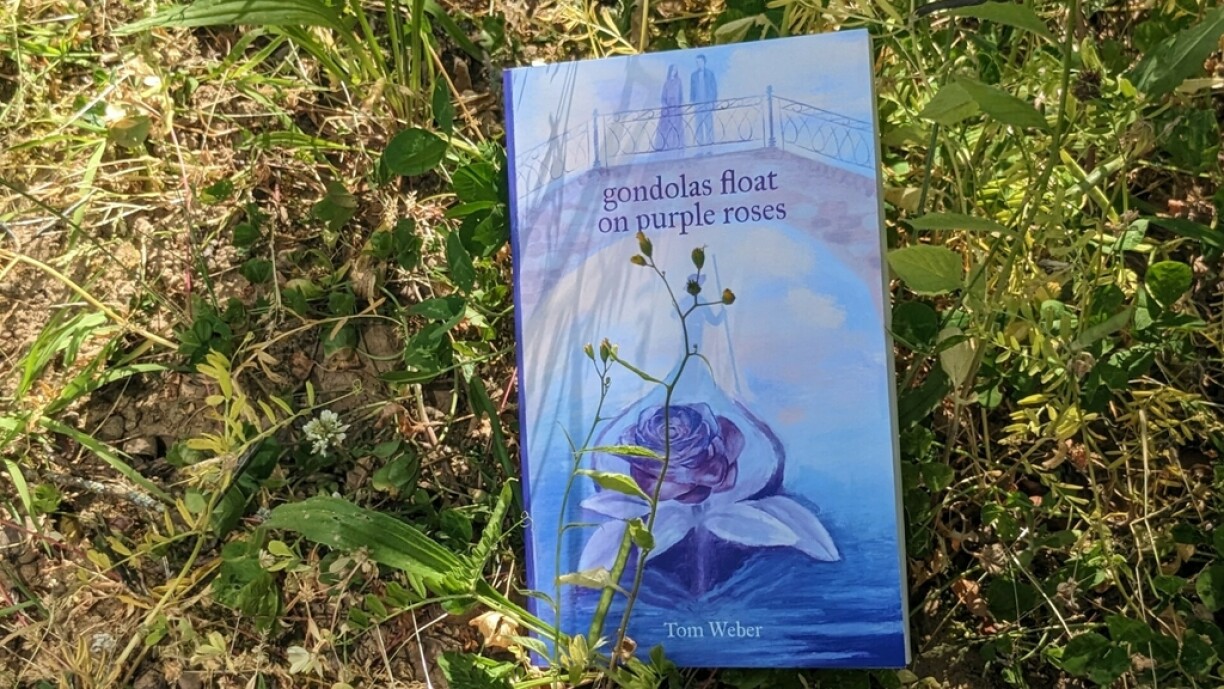
In the interest of transparency I should start this review by noting that, should the name Tom Weber sound familiar, it’s not only because it’s a surprisingly common name here in Luxembourg. This particular Tom Weber also happens to be an award-winning poet, and one of our translators here at RTL Today.
Don’t let that lead you to thinking that I would spare his work a vicious literary annihilation (incidentally, VanderMeer’s annihilation is an excellent novel) should that be what I felt it deserved upon finishing it. I may know Tom, and we would certainly be much poorer here at RTL without him (I mean just look at this, and this), but I am a man of integrity. If found his novella to be an unmitigated disaster destined for pulping, that’s what I would say.
So, is that in fact what I will say? Well there’s only one way to find out, isn’t there? You will have to read this whole review. Or, I suppose, you could copy-paste it into ChatGPT and ask it to summarise my blabbering in two sentences. If that’s how short your attention span is, though, I must confess that I’m confused as to why you clicked on a book review to begin with.
On the face of it gondolas float on purple roses is the story of the special - perhaps romantic - bond between two colleagues, set in one of the most romantic cities on the planet. As is generally the case with both literal and metaphorical faces however, you shouldn’t let it deceive you.
Yes, Weber treats his reader to a seemingly encyclopedic knowledge of Venice, but his debut English novel is a far cry from your typical romance novel. On the very first page, I was surprised if delighted to see the outlines of some ontological musings on the nature of existence in contemporary society. Through our protagonist’s musings on a solo bus journey, Weber lays out some of the fundamental existential dilemmas that serve as the backdrop for what is to follow.
He does this, I feel I should note, in a far more subtle way than my own summary - my vocabulary is damaged by years of academia and its ruthlessly functionalist vernacular - might suggest. It’s a fluid inner monologue as captured by the author, simultaneously introducing us to Tito and giving an understanding of the broader questions of life that plague him.
Through the interactions between Tito and the subject of his desires, Anja, as well as rich secondary characters, Weber weaves, through an aesthetic narrative, a thesis on the meaning of love. This is an exploration of the nature of human connection, and the impossibility of painting rigid categorisations of relationships which are, in reality, fluid. As much as it’s a story of love, it is an introspection on the very nature of the human condition.
It is all of these things without ever being ‘heavy’ or prescriptive, with every element of Weber’s philosophies explored not through painstaking explanation, but the lived experience of his character. In that way (and in essentially all other ways) it is the opposite of anything ever penned by Ayn Rand, an example of an author who tried but failed to combine philosophical musings and compelling narrative.
To set the scene, let me furnish you with the official synopsis of the novella:
Anja and Tito can’t believe their luck when the eccentric editor-in-chief of La Lettera asks them to cover the latest edition of the legendary Venice Biennale. But the seemingly routine trip quickly takes a turn as Tito grapples with increasingly complex feelings towards his long-time colleague and friend. From smashed artworks in the Giardini and the fragile wonders of Murano to vain celebrations in a decrepit Lido hotel, Venice is ripe with symbols and mystery in this highly introspective story. Come along on a journey through the ephemeral city that unravels the innermost nature of love and life itself.
Gondolas float on purple roses is available from your local bookshop, the online giant, or wherever you get books.